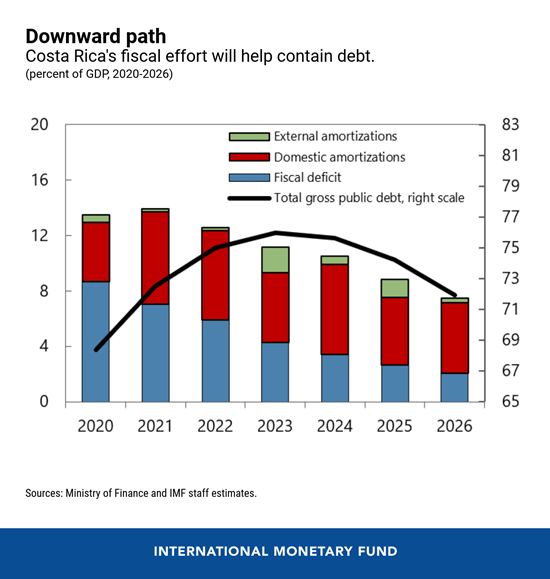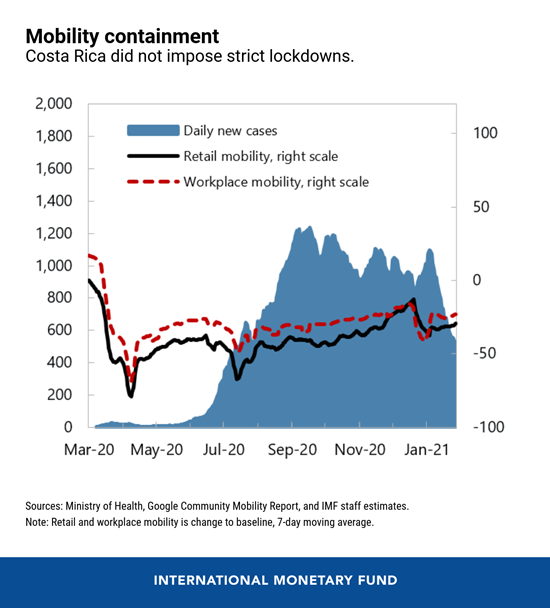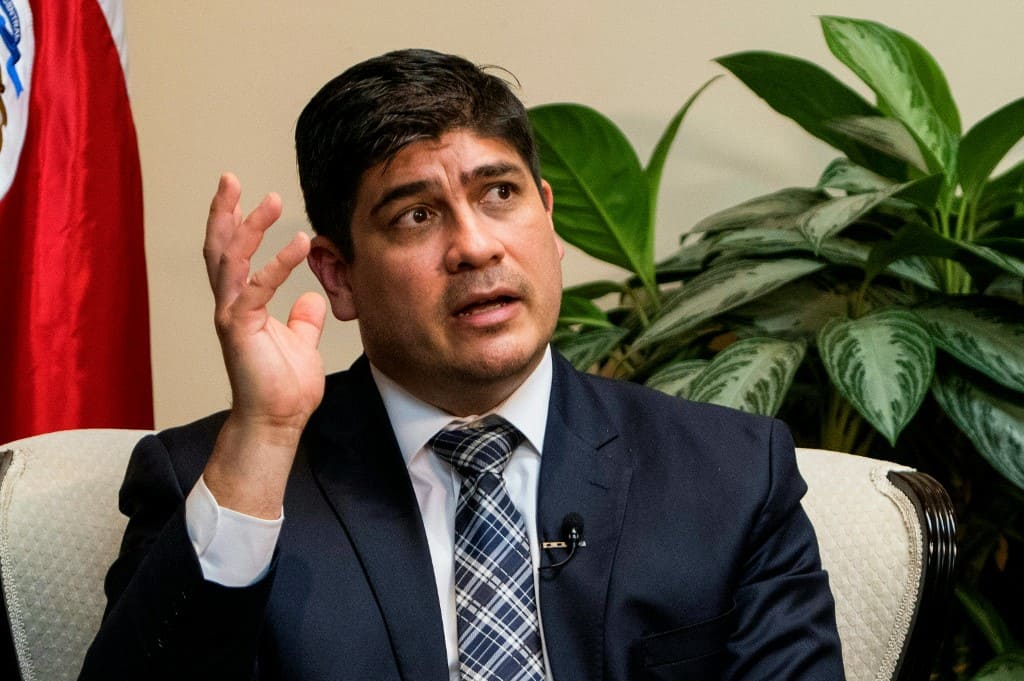The International Monetary Fund (IMF) on Monday approved a three-year, $1.78 billion loan to help stabilize Costa Rica’s economy. As part of the news surrounding the agreement, the IMF released an interview it conducted with President Carlos Alvarado regarding Costa Rica’s economic stability, its pandemic response, and its environmental goals.
Highlights of that interview are below. Read the full interview via the IMF website here.
IMF: What role do you see for the IMF in supporting the country’s policy and reform efforts?
President Alvarado: The IMF plays a key role in three areas: technical support to the program’s design, implementation and follow up; the credibility it brings to the process and to the macroeconomic policy program at the national and international level; and access to cheaper financing by mobilizing resources from other official creditors and supporting market confidence.
The COVID-19 shock was of such magnitude, not just on lives and livelihoods but also on the public finances, that fiscal consolidation is unfortunately inevitable. Having the IMF’s support helps us to smoothen this process and strengthen our public finances in a way that ultimately benefits all Costa Ricans.
The medium-term nature of the three-year program will also help ensure policy continuity throughout and beyond the 2022 elections, thereby boosting consumer and investor confidence and supporting economic growth and job creation.
IMF: What are the key objectives of Costa Rica’s economic reform program?
President Alvarado: The main goal is to boost growth and improve income distribution. First, though, we must address the fiscal imbalances.

We experienced a debt crisis in the early 1980s and know what it means: high inflation, a recession, and a brutal increase in poverty and inequality. Without strong public finances and macroeconomic stability, a government cannot boost growth and protect its most vulnerable citizens.
To put public debt on a decreasing trajectory and lay the foundations for economic recovery, we are targeting a primary surplus of 1% of GDP by 2023 and 1.7% by 2024.
We are also aiming to improve income distribution with strongly progressive revenue and expenditure measures and strengthening our social assistance programs. … Stabilizing public finances allows us to focus again on prosperity, social progress, and unleashing our citizens’ huge potential and talent.
IMF: How do you plan to boost productivity while tackling informality and inequality?
President Alvarado: Boosting productivity requires setting the right conditions for domestic companies to thrive, improving the regulatory framework, and reinforcing our commitment to trade and foreign direct investment, to help companies integrate in global value chains.
We have made important advances digitalizing the issuance of licenses and permits in all major cities; adopted a new insolvency law; strengthened our competition framework; and improved the governance of state-owned enterprises.
Competitiveness will also be boosted by stimulating innovation, including among small- and medium-sized enterprises, and by reducing infrastructure bottlenecks. We will rely on public-private partnerships to rapidly increase the quality of our road network, and we will also strengthen our digital infrastructure.
Another challenge is a labor market supply and demand mismatch. There is an increasing demand for professionals in services, science, and technology that our academic institutions are not managing to fulfill. We recently approved legislation to strengthen and modernize the National Institute of Learning, so as to better prepare for the 4th industrial revolution.
IMF: Costa Rica was named ‘UN Champion of the Earth’ in 2019. Tell us more about your plans to achieve a net-zero emissions economy.
President Alvarado: Expanding decarbonization into all areas of public policy has been a first and critical step to achieve zero net emissions by 2050. For example, at the beginning of the pandemic, we did not lower fossil fuel taxes and prices. This provided resources for emergency response and decarbonization. We are greening and electrifying the transportation sector, the largest contributor to greenhouse gas emissions.
We cannot fight climate change alone. Strong global cooperation and solidarity are needed. Since protecting nature is our life insurance against climate change, we are leading with France and the United Kingdom the High Ambition Coalition for Nature and People, aiming to protect 30% of our world’s land and marine ecosystems by 2030.
Costa Rica has been hit hard by the pandemic. What measures were introduced?

President Alvarado: The prompt and precise action of our first response institutions has been critical. Our social security system quickly expanded hospital capacity, allowing universal access to COVID-19 tests and treatment. We also allocated resources to support the most vulnerable, including by launching the “Bono Proteger” program that provided temporary subsidies to about 700,000 people economically affected by the crisis.
As a second step, we developed and implemented a strategy called “Costa Rica trabaja y se cuida” (Costa Rica works and takes care of itself). Rather than strict lockdowns, we imposed restrictions on vehicle mobility and limited business hours and capacity. Data and evidence have shown that these measures, accompanied by a strict face mask policy and sanitary protocols, have been very effective in reducing contagion with a lower impact on economic activity.






